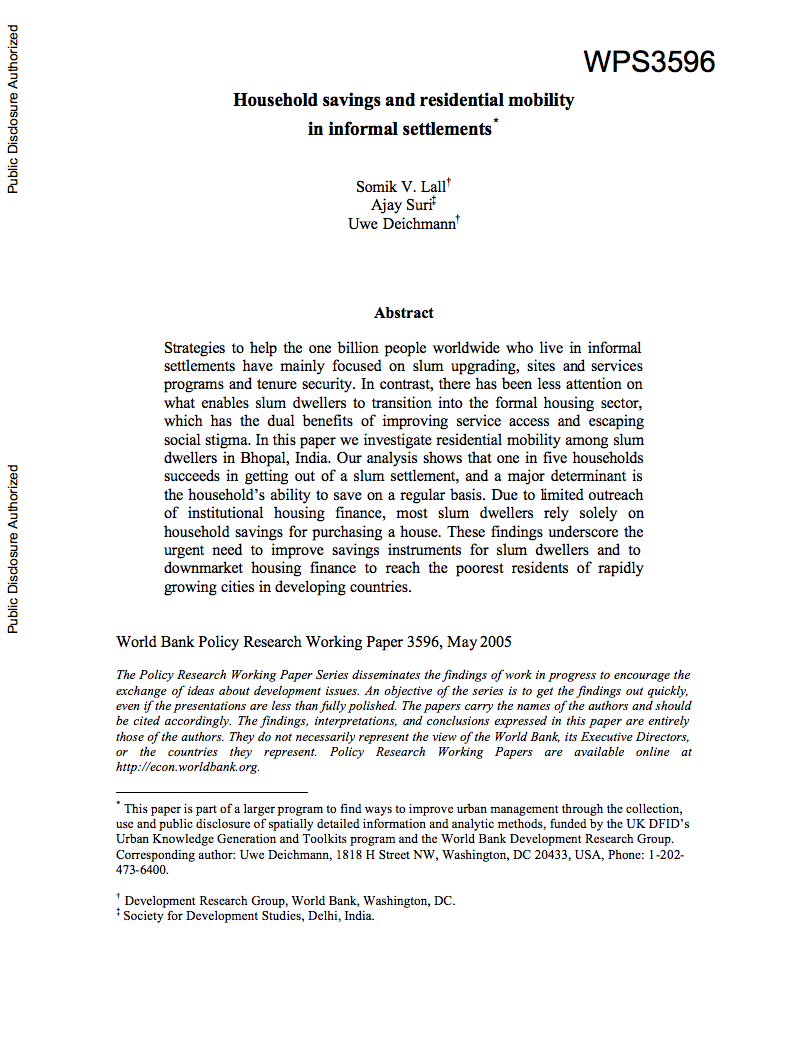The World Bank is a vital source of financial and technical assistance to developing countries around the world. We are not a bank in the ordinary sense but a unique partnership to reduce poverty and support development. The World Bank Group has two ambitious goals: End extreme poverty within a generation and boost shared prosperity.
- To end extreme poverty, the Bank's goal is to decrease the percentage of people living on less than $1.25 a day to no more than 3% by 2030.
- To promote shared prosperity, the goal is to promote income growth of the bottom 40% of the population in each country.
The World Bank Group comprises five institutions managed by their member countries.
The World Bank Group and Land: Working to protect the rights of existing land users and to help secure benefits for smallholder farmers
The World Bank (IBRD and IDA) interacts primarily with governments to increase agricultural productivity, strengthen land tenure policies and improve land governance. More than 90% of the World Bank’s agriculture portfolio focuses on the productivity and access to markets by small holder farmers. Ten percent of our projects focus on the governance of land tenure.
Similarly, investments by the International Finance Corporation (IFC), the World Bank Group’s private sector arm, including those in larger scale enterprises, overwhelmingly support smallholder farmers through improved access to finance, inputs and markets, and as direct suppliers. IFC invests in environmentally and socially sustainable private enterprises in all parts of the value chain (inputs such as irrigation and fertilizers, primary production, processing, transport and storage, traders, and risk management facilities including weather/crop insurance, warehouse financing, etc
For more information, visit the World Bank Group and land and food security (https://www.worldbank.org/en/topic/agriculture/brief/land-and-food-security1
Resources
Displaying 3511 - 3515 of 4907Household Savings and Residential Mobility in Informal Settlements
Strategies to help the one billion people worldwide who live in informal settlements have mainly focused on slum upgrading, sites and services programs, and tenure security. In contrast, there has been less attention on what enables slum dwellers to transition into the formal housing sector, which has the dual benefits of improving service access and escaping social stigma. In this paper the authors investigate residential mobility among slum dwellers in Bhopal, India.
The Structure of Lobbying and Protection in U.S. Agriculture
The author surveys the empirical literature on the political economy of agricultural protection. He uses a detailed data set of agricultural Political Action Committee (PAC) contributions over five U.S. congressional election cycles over the 1991-2000 period to investigate the relationship between lobbying spending and agricultural protection. A detailed graphical analysis of campaign contributions by the agricultural PACs indicates that although there are very many PACs, in most sectors the majority of contributions are made by very few PACs.
Environment Matters at the World Bank : Annual Review 2005
In line with one of the major themes in
the Bank's Environment Strategy, this 2005 annual
review is devoted to the theme of environmental health.
Viewpoint articles in this edition reflect several external
perspectives: the World Health Organization (WHO) lays out
the panorama of environmental risk factors; a successful
example of combating urban air pollution is provided by the
former mayor of Bogotá; successful strategies to enhance
Bhutan : Country Environmental Safeguard Review
The country environmental safeguard
review provides an overall assessment of Bhutan's
environmental safeguard system. The study is not intended to
be comprehensive or prescriptive. It is meant to provide a
broad overview of some key legal, policy, and institutional
challenges and highlight some options for possible future
action. The following points identify the broad focus of the
review: (i) identify critical gaps in Bhutan's policies
Shocks and Social Protection : Lessons from the Central American Coffee Crisis, Volume 2, Detailed Country Cases
A major objective of this report is to provide a deeper, more policy relevant understanding of the welfare impacts of the coffee crisis - including the effects of the crisis on household income, consumption, poverty, as well as on basic human development outcomes, such as education and child nutrition. To do this, the study has generated a body of new empirical evidence, drawing from an unusually rich collection of household survey data from El Salvador, Guatemala, Honduras, and Nicaragua.







